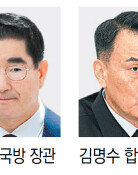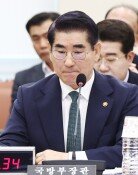SNU Expands Rolling Admissions Plan
Seoul National University (SNU) will expand its year-round rolling admissions quota to 46.9 percent of the 2007 incoming class, according to its 2007 admissions plan released yesterday.
The quota will include slots for special talent and regional balance considerations. In addition, SNU will cut the number of admitted students by 63 to 3,162 for 2007, and ease the admissions requirements for prospective students with talent in the natural sciences in an attempt to attract bright students.
According to the plan, SNU will select 1,483 applicants, or 46.9 percent of its student admissions quota, for 2007 through a year-round rolling admission process, including quotas for balanced regional development (25.3 percent) and special talent (21.6 percent). The remaining 53.1 percent will be selected through the schools regular admission process.
In 2006, SNU chose 1,236 students, or 38.3 percent, of its incoming class through a year-round rolling admission process. The rest, 61.7 percent, were admitted through the schools regular admissions process.
SNU has also curtailed its quotas for medical and management colleges by 33 and 30 percent, respectively, as it introduced a medical school and MBA. Under the current law, if university increased the quota for the graduate school, it must proportionately cut the slots in the undergraduate school.
Colleges of Natural Science and Engineering will choose 40 percent of their quotas through the year-round rolling admission. In particular, those who do not fully qualify the application requirements can apply for the quota for special talent in natural science studies. Instead, the under-qualified applicants should be able to prove their special ability using other means such as student records.
SNU has also changed the ratio of interview & oral test and essay in the 2nd phase admission process for special talent in liberal arts from 40 to 60 in 2006 to 60 to 40 for 2007.
SNU has loosened the requirements for the quota for students from rural areas. Those who went to middle and high schools in rural areas for six years will be able to apply for the quota even if their parents lived in rural areas only three years. Under the previous plan, the parents also had to live in rural areas to make their children eligible for the quota.
The number of students who will be selected for the special quota remains the same as last year: 95 for rural students, less than 20 for those in need of special education and less than 60 for foreign students.
wing@donga.com







